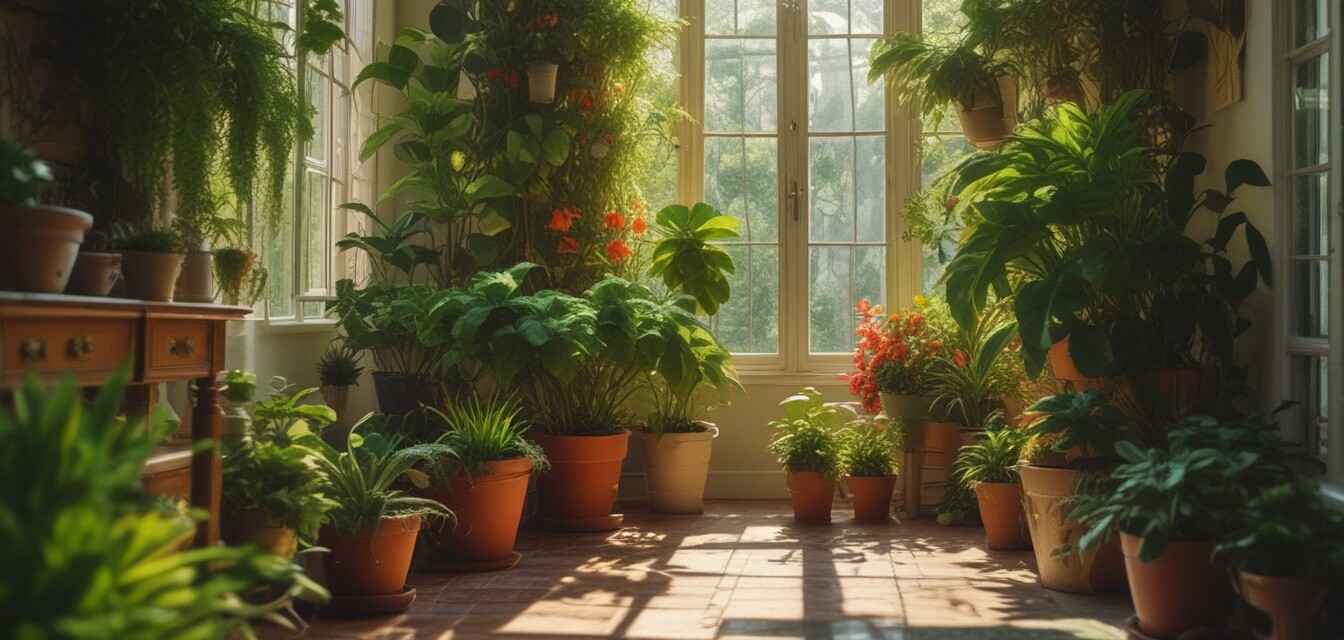
How to Keep Your Plants Pest-Free
Key Takeaways
- Regularly inspect your plants for early signs of pests.
- Utilize natural pest control methods to avoid chemicals.
- Maintain optimal plant health to prevent infestations.
- Use companion planting to deter pests organically.
Keeping your houseplants healthy and thriving is essential, and one of the biggest challenges plant lovers face is keeping pests at bay. Pests can quickly compromise the well-being of your plants, but with the right strategies, you can prevent and manage any pest issues without the use of harsh chemicals. In this guide, we’ll explore practical tips and techniques to help you maintain a pest-free indoor garden.
Understanding Common Houseplant Pests
Before diving into prevention methods, it's important to know what kinds of pests commonly affect houseplants. Here’s a quick overview:
| Pest | Description | Signs of Infestation |
|---|---|---|
| Spider Mites | Small spider-like pests that suck plant juices. | Silken webs and stippled leaves. |
| Aphids | Small green or black insects that cluster on new growth. | Yellowing leaves and sticky residue (honeydew). |
| Mealybugs | Cottony white pests that feed on sap. | White waxy substance on plant surfaces. |
| Whiteflies | Small, winged insects that rise when disturbed. | Sticky leaves and yellowing foliage. |
Prevention Strategies
1. Regular Inspections
Regularly inspecting your plants is crucial for spotting pests early. Check the undersides of leaves and other hidden areas where pests may hide. Make inspections a part of your routine, like watering or fertilizing your plants.
2. Maintain Optimal Plant Health
A healthy plant is less susceptible to pest infestations. Ensure that your plants receive:
- Proper lighting conditions
- A balanced watering schedule
- Appropriate humidity levels
- Nutrient-rich soil
3. Use Natural Pest Control Methods
Instead of harsh chemicals, consider using natural pest control options. Some effective methods include:
| Method | Description |
|---|---|
| Neem Oil | A natural oil that disrupts pest life cycles. |
| Insecticidal Soap | Safely kills soft-bodied pests on contact. |
| Essential Oils | Certain oils such as peppermint can deter pests. |
4. Companion Planting
Companion planting involves grouping plants together that can benefit each other by repelling pests or attracting beneficial insects. For example:
- Planting marigolds alongside vegetables can deter aphids.
- Basil near tomatoes helps repel spider mites.
Managing Infestations
1. Quarantine Affected Plants
If you spot a pest issue, immediately isolate the affected plants to prevent the spread to others. This is especially important in larger collections.
2. Manual Removal
For small infestations, manually removing pests can be effective. Use a damp cloth or cotton swab to pick off visible pests. This is particularly useful for mealybugs and aphids.
3. Rinse Your Plants
A gentle rinse with water can dislodge many pests, especially for insects that tend to cling to leaves. Use lukewarm water and ensure your plants can tolerate this treatment.
4. Regular Maintenance
Consistent care is key. Keep your plants healthy, maintain cleanliness in your plant area, and stay vigilant against possible pests. Frequent checks make addressing issues easier.
Conclusion
Keeping your plants pest-free is achievable with a little diligence and care. Regular inspections, maintaining optimal health, using natural pest control methods, and practicing companion planting will set you on the right path towards thriving houseplants. For more insights into caring for your green friends, check out our Care Tips section. Remember, a healthy plant is your best defense against pests!
Pros
- Natural methods are safer for you and your plants.
- Regular care helps foster plant growth.
- Cost-effective solutions for pest management.
Cons
- Some methods may require persistence for results.
- Not all pests can be easily removed with natural solutions.
For more information on keeping your plants healthy, explore our other articles, such as Air-Purifying Plants, Low-Maintenance Houseplants, or Buying Guides.

